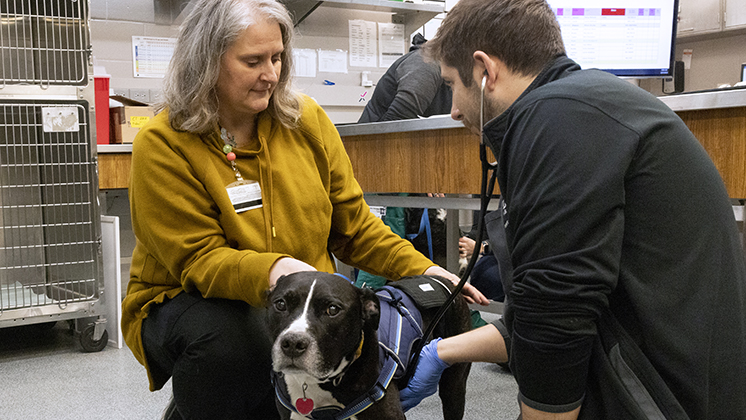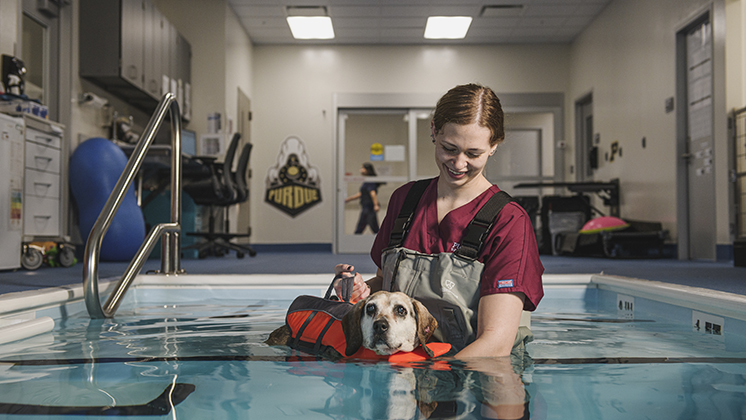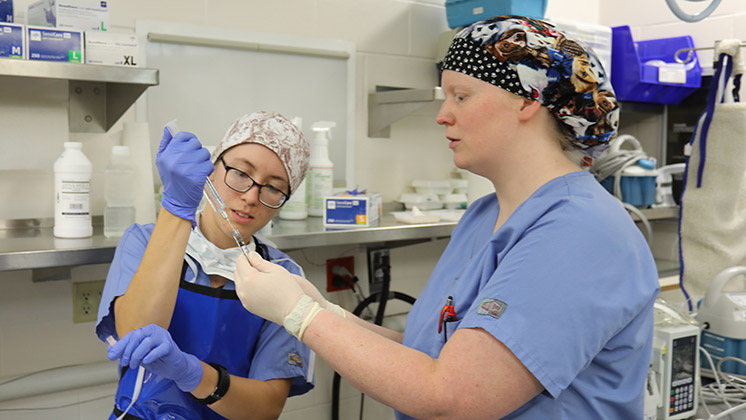Can You Be a Vet Tech Without a Degree?

by Paige Allen, MS, RVT and Josh L. Clark, MS, RVT
The role of a veterinary technician, or vet tech, is a rewarding one filled with diverse responsibilities. Veterinary technicians assist veterinarians in various tasks, from conducting lab tests and taking x-rays to assisting with surgeries and providing nursing care to animals. It's a role that requires a unique blend of education, technical skill, animal handling expertise, and a compassionate heart. Many prospective students often wonder, "Can you be a vet tech without a degree?" The answer is nuanced and depends on your location and the specific requirements of your state.
In most states, in addition to a degree, you also must take a test to be credentialed (registered, licensed, or certified) or call yourself a veterinary technician and you cannot take the test without a degree.
In some states, it's possible to work as a vet tech without a formal degree. These states may allow on-the-job training, where you'll learn the necessary skills under the direct supervision of a licensed veterinarian. In states where credentialing is required, you can still work in a veterinary setting as a veterinary assistant. However, this route is becoming less common, and it might limit your career prospects, advancement opportunities, and the ability to move from state to state.
Most states, however, require that veterinary technicians have at least an Associate Degree in Veterinary Technology. This degree provides a comprehensive education that encompasses both theoretical knowledge and practical skills necessary to perform the role effectively. After completing their degree, graduates are typically required to pass the Veterinary Technician National Examination (VTNE) to become credentialed.
Even if you're in a state that does not require a formal degree, pursuing a veterinary technician degree can still be beneficial. The degree program not only equips you with a broad range of knowledge and skills but also demonstrates your commitment to offer the highest level of nursing care to your patients and support to your clients. It can make you a more competitive candidate when applying for jobs and potentially open doors for career advancement or specialization.
While it may be technically possible to become a veterinary technician without a degree in certain states, the majority of states and employers require or strongly prefer candidates with a veterinary technician degree. The degree offers comprehensive education that prepares you well for this demanding and rewarding career. We recommend you check the specific requirements in your state before deciding on your education path.
Start Your Veterinary Technician Journey
Find your calling as a Purdue Veterinary Technician!
Not quite ready to apply? Connect with us to learn more.
Suggested Articles

How Do I Get a Vet Tech Job?
Embark on your journey to land a vet tech job with our comprehensive guide. From AVMA-accredited education to crafting the perfect resume and mastering the interview, navigate each step to ensure you secure a fulfilling position in the realm of animal healthcare.
Read more
What Are the Pros and Cons of Online Vet Tech School?
Explore the detailed requirements for becoming a vet tech. Learn the importance of a degree, the nuances of credentialing, and the distinct state regulations. Can you become a vet tech without formal education? Discover the advantages and limitations of each pathway.
Read more
How Long Does It Take to Pay Off Vet Tech School Debt?
Discover how long it takes to pay off vet tech school debt based on various factors including total debt, repayment plans, and post-graduation income.
Read more
